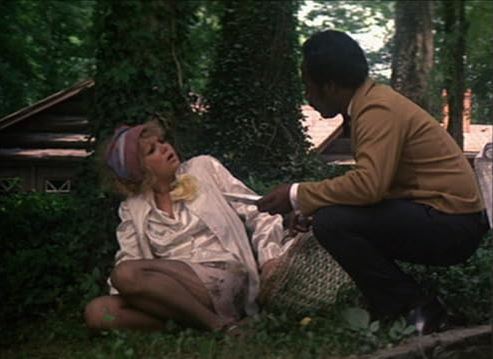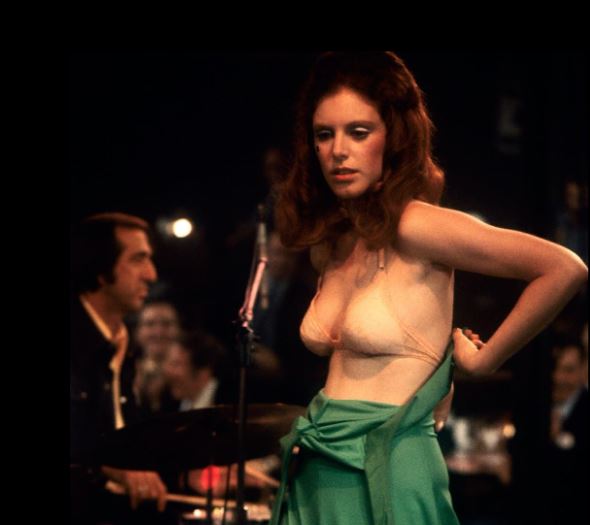
In a nation of liars, he is a beacon of truth. In a city packed to the gills with self-deception, self-indulgence, and the defiantly untalented insisting on themselves at every opportunity, he is a refreshing, almost essential pitstop. Here, you’ll get it straight. No chaser, sure, and just as little bullshit. He is Wade, perhaps Nashville’s only remaining man of integrity, which means he just might inhabit the last honest skin in the whole of America. Because Nashville is America, from the opening blast of faux patriotism to the final immersion in the passivity we all secretly crave, despite our sanctimoniously puffed chests, swelled from the endless gripes that define our days. Thankfully, we just got rid of Nixon and his special brand of trickery, so now we can go back to lying to ourselves.
It’s easy to forget about Wade, what with the two-dozen characters who roam about the streets, stages, and local watering holes of our fair city, but his appearance always stops us cold. Listen up, folks, because we’re about to learn something. Take his first extended scene, where singer Tommy Brown is about to remind the good people of Nashville that if you’re going to be black in this town, it’s best you avoid everything that might remind them of such. Neutered, in that special way white America always enforces while insisting it’s doing the exact opposite. Be black, but not too black. Hell, who sees color anyhow? We sure as hell don’t, so erase any trace of yours. Wade gets it. All too well, in fact. He speaks from his heart what everyone truly thinks about Mr. Brown and is thrown out of the establishment for his trouble.
But it’s the scene with the spectacularly talent-free Sueleen where Wade makes his lasting mark. Sueleen has just been humiliated at what she thought was an opportunity to display her angelic voice, when in fact it was – predictably – just another way for horny drunks to get a peek at some skin. Sing, sure, but don’t forget to get naked. It’s misogyny writ large, packed into a scene of stunning embarrassment, but what’s worse is that Sueleen isn’t at all fazed. She’s so internalized the myth that mere pluck is all a gal needs, she’s reinterpreted her degradation as the first stop on the road to redemption.

After telling Wade about the circumstances of her striptease, Wade lays it out:
“Oh, shit, Sueleen, I… That’s dreadful! That’s terrible, girl! I mean… I don’t know how to tell you this, but I been meanin’ to… you can’t sing. You may as well face the fact you cannot sing. You ain’t never gon’ be no star. I wish you’d give it up. They gon’ kill ya. They gon’ tear your heart out if you keep on. They gon’ walk on your soul, girl.”
In the blink of an eye, our sympathy for poor Sueleen turns to rage, given her retort. “What are you talking about?”, she coos, innocent as the morning dew. Wade repeats his undeniable assessment. “Yeah, you wanna make a bet?”, she replies, defiant yet blissfully unaware. “You wanna come to the Parthenon and watch me sing with Barbara Jean?” Wade is incredulous. He knows where this is headed. Rejections, more delusions, an addiction or two, then a hasty suicide in a downtown fleabag. Wade knows. Hell, he’s almost been there himself. Words of wisdom sent packing, forever and always.
The final moments of the film, with massive flags flying and America’s true National Anthem uniting the faithful in their collective resignation (“You may say that I ain’t free, but it don’t worry me”), are among the era’s most moving. Here we are, Altman sighs, and that’s that. We’ve given up, but we’ll go on. Because breathing is largely involuntary. Still, there’s Wade. He too has punched his last time card, but he’ll outlast them all. He knows his place. Because survival is ultimately about knowing you never really had a chance to begin with.
Leave a Reply